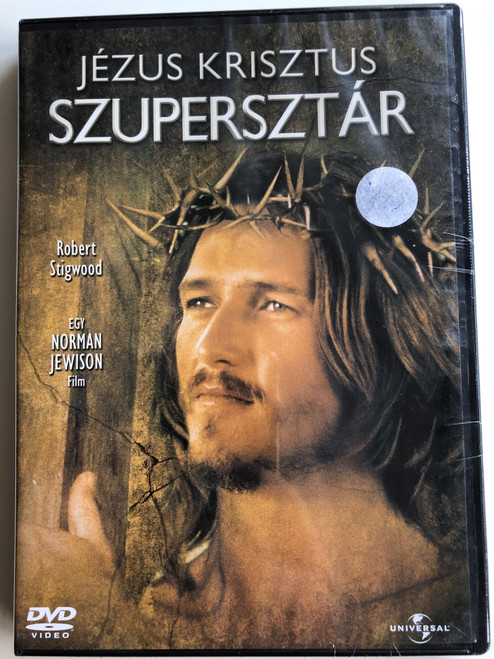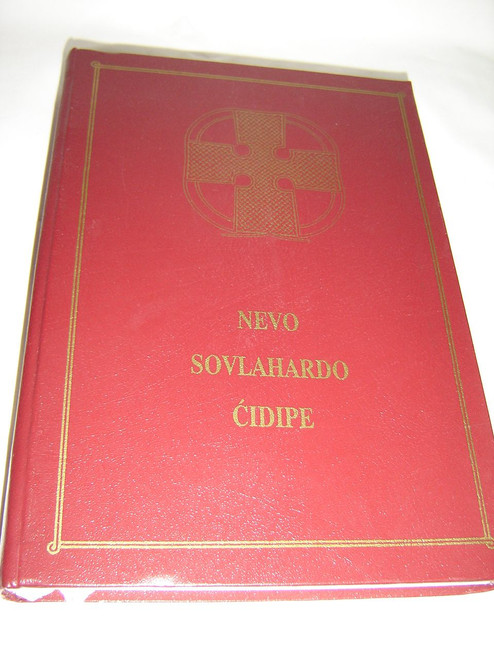Product Overview
A megkoronázott Krisztus by F.W. Grant - Hungarian translation of The Crowned Christ / " I propose to take up, in reliance upon divine grace to enable me, the personal titles and glories of our Lord Jesus Christ"
PAPERBACK
ISBN: 9783866981911, 978-3866981911
PAGES 104
PUBLISHER: EVANGÉLIUMI
About the Author:
F. W. GRANT was born in the Putney district of London, on 25th July, 1834. His conversion was occasioned by the reading of the Scriptures himself, and not through the instrumentality of others. He was educated at King's College School with the expectation of securing a position in the War Office. The necessary influence for this failing, he went to Canada when he was twenty-one years of age. At the time he came to Canada the Church of England was opening parishes in the new parts of the country, and he was examined and ordained to the ministry without having taken the regular college course. He left the "systems" on receiving light through the reading of the literature published by so-called "brethren, " and lived for a time in Toronto, afterwards coming to the United States, where he lived in the city of Brooklyn, and then in Plainfield, N.J., till his death. He was the leader in what is known as "the Grant party" in America.
His claim for a permanent place in the hearts of the saints rests—as it really does with any, but more ostensibly than with most—in his identification with the Word of God. Unknown to many in the flesh, who have profited by his ministry, with little of what may be called popularity, or the magnetism supposed to be so essential in a leader, he is lost sight of in the precious truth which it was his joy to unfold. Those who knew him personally loved him for the worth and Christian nobility of his character, the fruit of God's grace; for that wondrous mind received from Him; and for the simplicity and dignity of a true Christian man. But it is not of these things that we speak, while we would ever seek to walk in the steps of piety and faith wherever seen. We turn rather to that Word to which he held fast, and, in conscious feebleness and dependence, used so constantly. What views of the Word did he give us! What thoughts of Christ! What truths under the guidance of the Holy Spirit! These abide.
He had been for years a diligent student of the Book of Psalms. Not only did their contents attract, but the form in which they were written—their divisions into a pentateuch, the acrostic form of a number of them, their evident relation one to another in various groups—all these things impressed him with the fact that God had written them upon a distinct plan in which the numerical significance of psalm and group and book had a clearly marked and important place. But if the Psalms were written thus, why not all Scripture? So he went on, till he found the same Divine harmony throughout the inspired Word, set to work, and with unbounded patience produced "The Numerical Bible," issued in several volumes, unfortunately not embracing the whole Bible. He was the author of "Facts and Theories as to a Future State, " "Genesis in the Light of the New Testament" "Spiritual Law in the Natural World," "The Crowned Christ," and many other valuable books and pamphlets, which have had an extensive circulation on both sides of the Atlantic.
The passion of our brother's life, the desire that consumed him, was to make Christ more precious, to make His Word, more loved, more read, more studied. He made a s gnificant utterance shortly before his departure. Sitting propped in his chair, with the Word of God open before him, as was his custom through the days of weary, helpless, waiting, he turned to the writer of these lines, and with a depth of pathos, glancing at his Bible, said: "Oh, the Book, the Book, the BOOK !" It seemed as though he said: "What a fulness there; how little I have grasped it; how feeble expressed its thoughts. " Thus he passed to be "with Christ" at Plainfield, New Jersey, on 25th July, 1902, on his sixty-eighth birthday.
Hungarian Summary:
A szerző írásában Jézus Krisztus címeit és dicsőségét kutatja, hogy a szívekben imádat ébredjen, és mindinkább felismerhessük, hogy ki is ő, hogy méltóképpen megkoronázzuk.
- Krisztus istensége
- Az örökkévaló Fiú
- A testté lett Ige
- Emberi szelleme és lelke
- Az ember Fia
- A "második Ember"
- Az utolsó Ádám
- A felkent pap
- A szószóló
- A király
- Mindennek feje és örököse
- A Test feje
- A vőlegény Isten és a Bárány trónja
English Summary:
Intro Originally Published in 1880
"Few prefatory words can be needed to introduce to our readers the series of papers which, if God grant time and ability, may follow this. I propose to take up, in reliance upon divine grace to enable me, the personal titles and glories of our Lord Jesus Christ, as Scripture declares them to us, for the worship of our hearts, and that, in meditation upon so fruitful a theme, we may perhaps realize more distinctly what He is to us, and, as it were, crown Him with His many crowns. For this He looks for from us, to give Him the glory which is His: in doing which our own souls will surely enlarge their possessions, and find more the wealth with which He has endowed us, living in the blessed beams of that effulgent glory, and being brightened by it: "with open face beholding the glory of the Lord," and being "changed into the same image from glory to glory."
Our study will be, therefore, above all a devotional one, if God grant the desire of my heart, as He knows it. Perilous, indeed, it would be to approach such a theme in any other than the spirit of a worshiper. To look into these divine infinities without realizing in whose Presence we stand would be profanity. Yet our safeguard is not in refusing to draw near where grace invites and welcomes us, but the opposite. The place of nearness is where alone we are safe: the sanctuary is our refuge. And while we look upon Him of whom it is written, "No man knoweth the Son, but the Father," our comfort and assurance lie in this, that, in so far as Scripture speaks of Him, it speaks to be understood; and the only thing that can be the part of faith is to seek to understand it."
This is a 14 chapter work on Jesus Christ, examining his Deity, his Eternal Sonship, the Word made flesh, His human spirit and soul, the Son of Man, the "Second Man", the Last Adam, the Anointed Priest, the Advocate, the King, the Head and Heir of all things, Head of the Body, the Bridgegroom, and the Throne of God and of the Lamb. CONTENTS Introduction Chapter 1. - The Deity of Christ Chapter 2. - The Eternal Son Chapter 3. - The Word made Flesh Chapter 4. - His Human Spirit and Soul Chapter 5. - The Son of Man Chapter 6. - The "Second Man" Chapter 7. - The Last Adam Chapter 8. - The Anointed Priest Chapter 9. - The Advocate Chapter 10. - The King Chapter 11. - Head and Heir of all things Chapter 12. - Head of the Body Chapter 13. - The Bridegroom Chapter 14. - The Throne of God and of the Lamb







